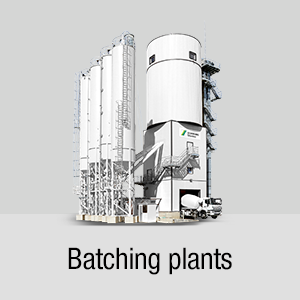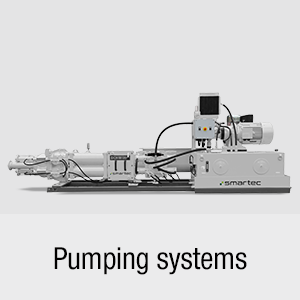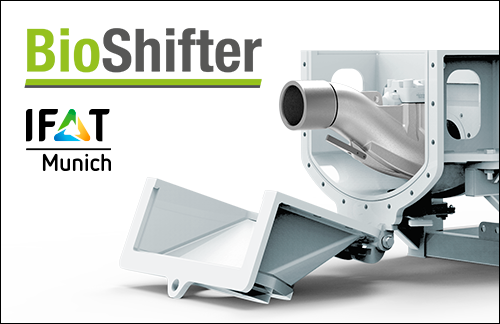At this year's IFAT 2024 in Munich, the SCHWING Group will be demonstrating how valuable raw materials can be used as biogas with the BioShifter product.
Around a third of all food is thrown away worldwide.
In Germany, twelve million tons of food end up in the trash every year, which is more than 50% of all food produced in Germany - an average of around 313 kg per second
This food, but also renewable raw materials (NaWaRo) such as wood, maize or wheat, contain pure energy that is either converted aerobically (with oxygen and bacteria) into heat in biogas digesters or anaerobically fermented into gas in biogas plants. In most biogas plants, the resulting gas is used on site in a combined heat and power plant to generate electricity and heat. Newer plants process the biogas with the addition of CO2 and H2O to produce biomethane, which is of such high quality and purity that it can be fed directly into the existing natural gas grid.
In Germany, the number of biogas plants has increased tenfold in the last twenty years. The German Biogas Association sees great potential for savings and is calling for further expansion to be driven forward quickly and without red tape. Within the process chain in the biogas plant, the biomass prepared in the shredder and sieve drum must be transported to the fermenter via pipelines. As the inventor of the S-pipe, SCHWING has once again addressed this issue and, with decades of experience with the ROCK slide valve, has completely rethought the S-pipe. The result is a modern pipe shifter pump that is specially designed for conveying biomass with a high proportion of impurities: the BioShifter. The BioShifter is combined with a proven two-cylinder piston pump in different lengths and diameters depending on the application and includes the advantages of the ROCK slide valve with low wear, easy maintenance and low susceptibility to faults.
Pressure compensation springs for greater tightness
Over the years, the ROCK has matured into a popular endurance runner. Pressure compensation springs at the front and rear ensure reliable tightness, which is maintained for a long time and reliably even under high loads. SCHWING is now transferring these advantages to the new version of the S-tube. Pressure compensation springs fitted on both sides automatically compensate for the gap lost over time due to wear, increase the pressure and reduce leaks over a long period of time. As a result, less manual adjustment is required and the risk of water leaks is dramatically reduced: the S-pipe remains tight!
Flow-optimized
The BioShifter has been redesigned from the ground up to optimize the flow. The deflection of the media flow has been minimized, which reduces wear and thus increases longevity. At the same time, potential failures caused by any impurities that could clog the pipe path are reduced to a minimum and the risk of lump formation due to inhomogeneous dewatering of the transport medium is counteracted.
"Our aim with the new BioShifter is to make a major contribution to pumping the bound energy contained in overstocked food and nawaros more efficiently, reducing the CO2 footprint and thus reducing dependence on fossil natural gas in the long term," says Jens Heinrich, Head of International Marketing at the SCHWING Group.
For more information, please visit the BioShifter product page.
Text & Image:
SCHWING Group
Heerstr. 9-27
44653 Herne
www.schwing-stetter.com









